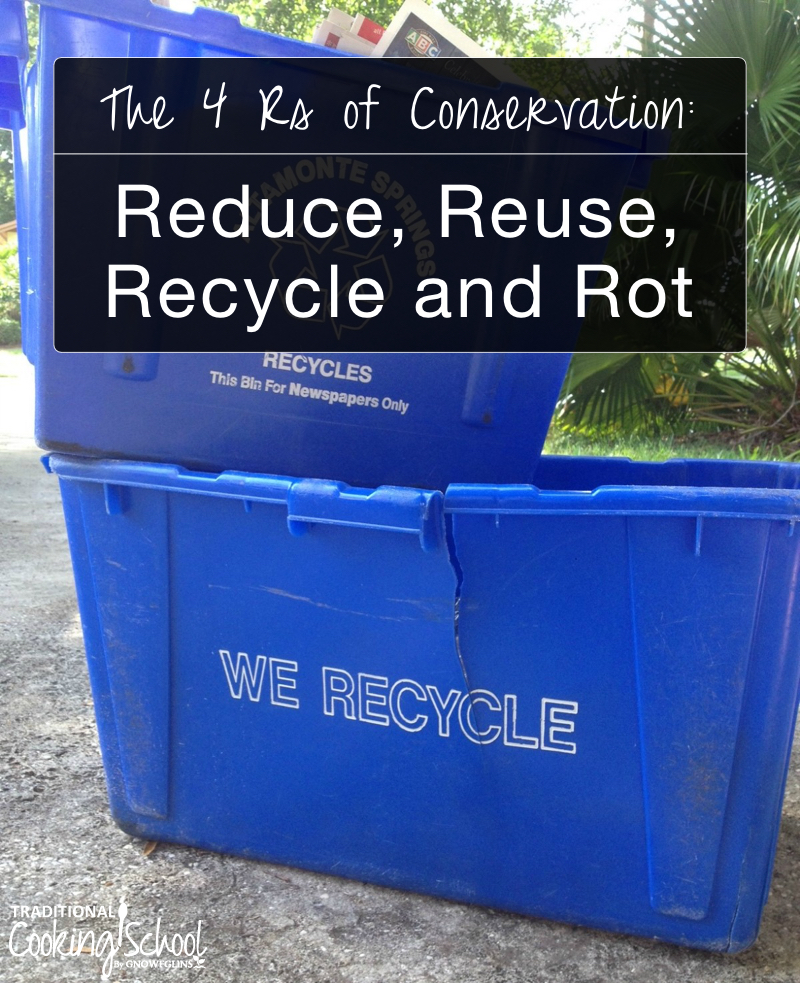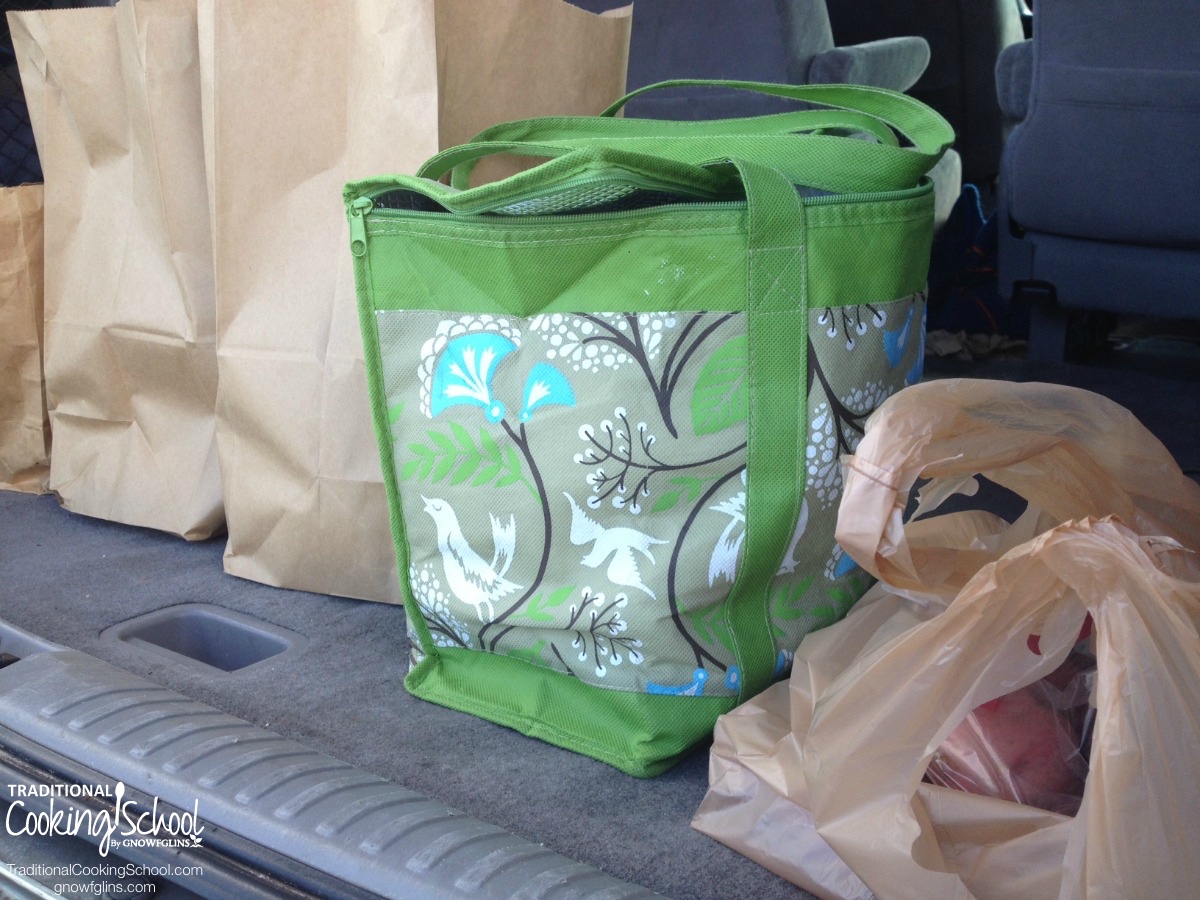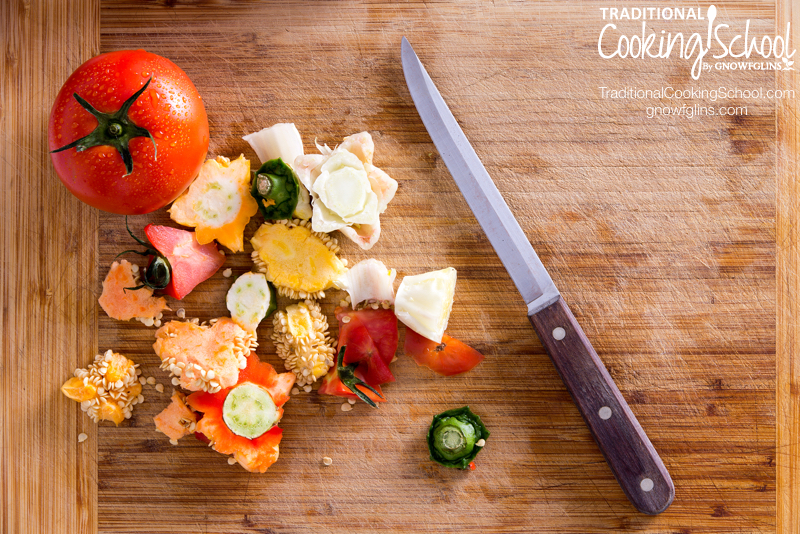
“Stewardship is foundationally understanding that we are not owners of things, but managers. It basically boils down to three major points:
1. God owns it all.
2. We are all stewards.
3. We have a responsibility to manage it for His glory.
If we understood these pieces, we would do things differently and everything would fall into place.”
–Chris Goulard, Pastor of Stewardship at Saddleback Church
“The care of the Earth is our most ancient and most worthy, and after all, our most pleasing responsibility. To cherish what remains of it and to foster its renewal is our only hope.”
–Wendell Berry
Eating local, eating real, and eating organic is a great start, but it’s just the start — on a long path to helping clean up our planet. Just like everything else, it’s a journey beginning at your own front door. Here are a few ideas to help you Reduce, Reuse, Recycle, and Rot in your own home, neighborhood, and town.
#1 – Reduce
Reduce the waste that comes with packaging. Processed food is one of the worst offenders, but even healthy food comes with its share. Whenever possible, bring your own reusable bags to the grocery store or farmer’s market; jars or containers to restaurants for your leftovers or take out; reusable mugs to the coffee shop; reusable containers for school and work lunches. Avoid “fun size” anything, buy in bulk and use reusable containers to store at home, or split large orders with friends or neighbors.
Avoid impulse shopping and instead buy only when you are sure it is something you will use and not discard after the novelty has worn off. Repair items whenever possible. Bless others with your children’s outgrown clothing. Get familiar with Freecycle, Craigslist and other online communities that help you turn your trash into someone else’s treasure.
Reduce food waste by making weekly menu plans, keeping track of what’s in your refrigerator and using it up before it goes bad, making homemade broth from meat trimmings and bones, or making homemade soup. Get creative with leftovers. Learn to eat things like radish tops, carrot tops, and beet greens (yes, they are tasty and edible). Stop peeling your vegetables and just scrub them well instead. Freeze overripe fruit for smoothies or jam. Puree leftover herbs with olive oil and freeze, or dry the herbs and use in place of store-bought.
Render fat from pasture-raised animals to replace the industrially-processed rancid vegetable oils. Save your bacon grease, too! Freeze the chicken livers that come in your whole chickens until you have enough to make pate or mix into sausage.
Use soured milk or “old” milk in place of buttermilk to make pancakes or biscuits. Use leftover whey to feed your chickens or pour onto the garden as a mineral supplement/fertilizer. Put stale bread in the food processor and make homemade breadcrumbs to freeze, or cut into cubes to make croutons.
Learn to make coffee with a French press for nearly waste-free coffee, or use Chemex or a drip coffee maker since both the filters and grounds can be composted, unlike those plastic K cups. Or you can try refilling your K cups with your own coffee blend. Tell your dry cleaner you don’t want the plastic bags on your clothes.
#2 – Reuse
Bottling water into plastic and then shipping it long distances is an extremely wasteful practice. Additionally, the safety standards for tap water are usually more stringent than the ones for bottled water, so there’s no guarantee you are getting a healthier product than what you could get from your own home — especially if you already have some kind of filtering system. Some countries have actually banned the sale of single-use bottles and cans, and have instead moved back to the old-fashioned refillable glass bottles. San Francisco, CA and Concord, MA have also banned single-use plastic water bottle sales in an effort to reduce plastic waste.
Use washable rags and cloth napkins instead of paper towels and napkins. Use washable items for picnics instead of disposable. If you’re crafty you can even reuse your plastic grocery bags to make reusable bags or you can use the plastic bags as stuffing for handmade pillows or a pet bed.
Old tools can be cleaned up, sharpened and put back into service. How-to instructions and videos are easy to find online. Who knows, you might be able to make extra income by re-selling your refurbished tools.
Donate your old cell phones or computers. Most cell phone providers have bins in store and there are many charities that use the phones for refurbishing and then selling to make money for the charity. The metals and plastics inside computers can also be reused.

#3 – Recycle
The biggest problem in recycling is still plastic. Americans throw away 185 pounds of plastic per person every year. The less plastic you use or bring into your house, the better. Plastic never really goes away — even the tiny fibers from synthetic fabrics that wash out from the laundry eventually find their way into waterways. San Jose, CA banned plastic shopping bags in 2012 and reduced the amount of plastic flowing into their creeks and rivers by 60%.
Reuse or recycle your plastic instead of throwing it out. Some creative people are making big bucks by recycling plastic water bottles into art and household objects and selling them on Etsy. You can keep your plastic bottles out of the landfill by turning them into self-watering seed starters, DIY bird feeders, or a jet pack for dress-up fun for the littles.
Since I’ve never had luck freezing anything in glass I reuse plastic yogurt containers to freeze broth, cooked beans, soup, and berries. I also find those 5-gallon food grade plastic grain buckets piling up in my garage. They can be reused as container gardens just by drilling a few holes in the bottom. Alternatively, use the buckets to organize large items in your garage or storage room — things like sponges, towels or rags, gardening tools, sports equipment, and mulch. Or use them to sort the things you take to the recycling center each week. One person used them to make a mini-aquaponics garden and someone else made chicken nesting boxes. If you still have the lid for your 5-gal bucket, use it to make a compost bin. Instructions are easy to find online.
Pinterest is a great place to find recycling ideas. Old jeans can be turned into pot holders, pillows, bags, aprons, picnic blankets, and so much more. Tin and aluminum cans can be turned into luminaries for Christmas and parties. Speaking of Christmas, old greeting cards can be made into hundreds of different things. I’m not terribly crafty, but even I can cut the pretty pictures into squares and punch a hole into one corner for instant gift tags. Martha Stewart and Pinterest can fill your head with advanced ideas enough to fill several afternoons.
Several companies are now using reclaimed cotton and reclaimed wool to make new garments without using any additional fertilizer, water, or pesticide. Reclaimed cotton comes from remnant scraps from the cutting room of clothing producers. Reclaimed wool usually comes from old garments “upcycled” into yarn and made into new products. You can even buy upcycled yarn to use in your own projects. You can also reclaim your own cotton by cutting old t-shirts into rags, polishing cloths, and other reusable items. If you’re especially talented you can transform these into rag rugs or quilts.
Dan Phillips, a designer and builder in Texas, makes houses from recycled building materials and other cast-off scraps like beer cans and egg shells. He says the first cause of waste is “our inability to see other uses for items that may not conform to their original intended use. We need to be willing to embrace imperfect items used in creative ways”. You can see some of his creations and hear more about his ideas here.
Take Dan’s advice to use items in creative ways. Use a glass cutter to cut the bottoms off bottles and jars. The modified bottles can be used in the garden as mini-greenhouses for seedlings, or strung together to make wind chimes. If you don’t want to cut them you can reuse whole bottles by filling with kombucha, homemade vanilla, or herbal tinctures. Melt down all your old candle stubs, remove the wicks, and pour the melted wax into recycled glass jars with a new wick from the craft store for “reclaimed” candles to use as gifts or for yourself.
#4 – Rot
Composting is the final step in turning trash into treasure. This time your treasure is black gold for your garden beds. Compost as much as you can: fruit and vegetable scraps, eggshells, grass clipping and shrub trimmings, newspaper, cardboard, wood shavings, bread, cereals, pasta, coffee grinds and tea leaves, even dryer lint from natural fiber fabrics. You can even compost meat, dairy, and animal waste if you follow certain guidelines.
Composting can be done in many ways. Check out this article for tips on standard composting or try worm composting. Australians reduced the waste going to their landfills by 65% over four years (1996 through 2000) when many people began worm composting at home. Compost worms eat their weight in waste every single day. The worm manure (also called worm castings) is the best fertilizer and growing medium for anything from houseplants to gardens, lawns, and trees. Worms can compost things that can’t go into regular compost piles such as diseased plants. When the worms eat the diseased plants, their worm castings go back into the garden to act like an inoculant for the plants growing there — a kind of natural worm vaccine if you will — so the plants get stronger and more disease-resistant. You can find worm bins to purchase online at places like Our Vital Earth, or you can try your hand at DIY worm bins.
These ideas are just the tip of the iceberg when it comes to creative ways to reduce waste. Leave us a comment with your favorite tips and help us all find more ways to grow our stewardship and care for the Earth.
What are your favorite waste reduction tips?
...without giving up the foods you love or spending all day in the kitchen!

2 free books:
Eat God's Way
Ditch the Standard American Diet, get healthier & happier, and save money on groceries...
We only recommend products and services we wholeheartedly endorse. This post may contain special links through which we earn a small commission if you make a purchase (though your price is the same).



Leave a Reply